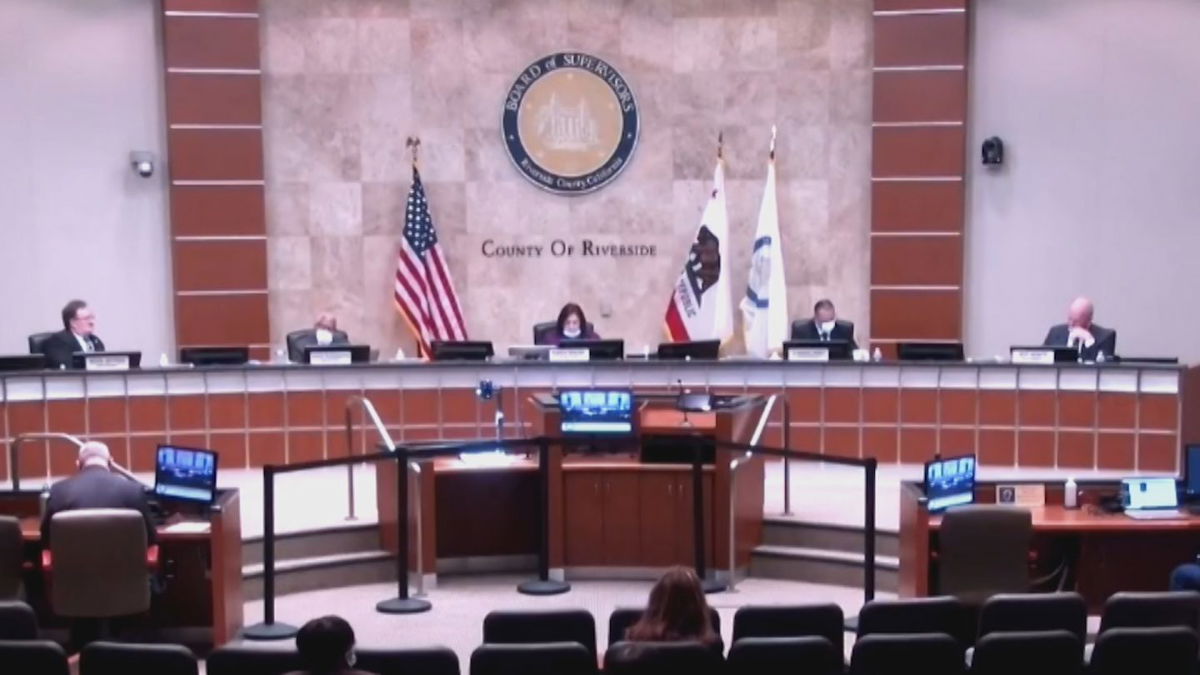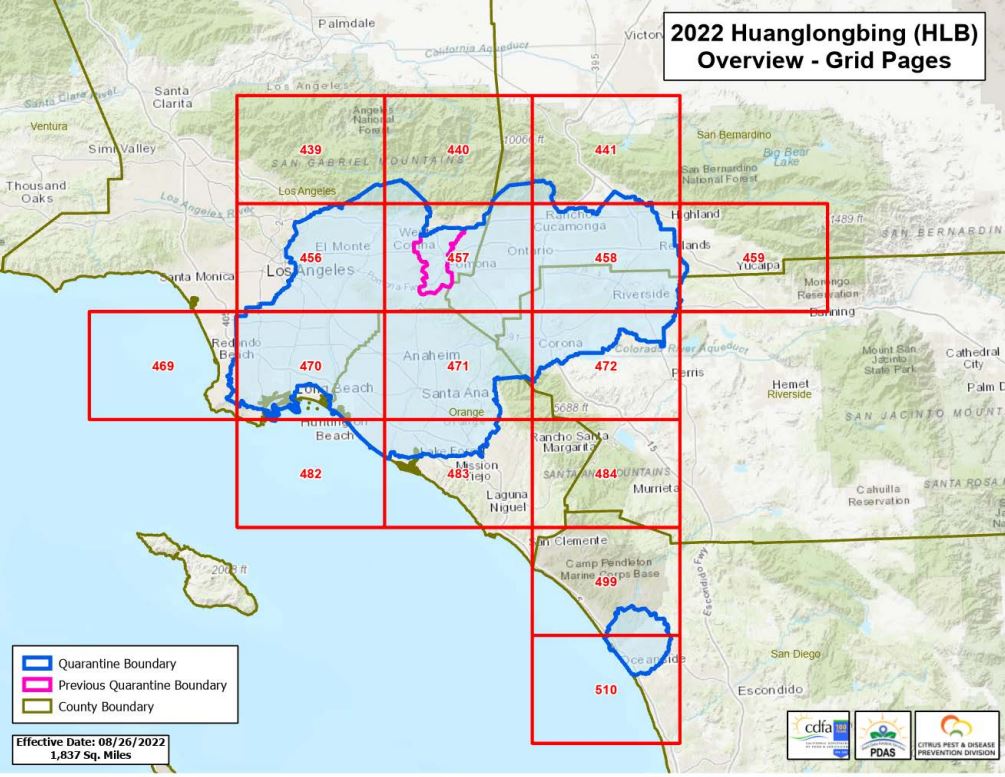Supervisors OK Contract with State to Combat Citrus Greening Disease

The Board of Supervisors today approved the Riverside County Office of Agriculture's request to remain under contract with the state to enforce regulations aimed at combating citrus greening disease.
In a 5-0 vote without comment, the board signed off on Agricultural Commissioner Ruben Arroyo's proposed renewal of a one-year contract with the California Department of Food & Agriculture to take all necessary steps to contain and prevent spread of Asian citrus psyllid infestations, which cause greening disease, also known as Huanglonbing, or HLB.
The contract will expire on Sept. 30, 2023.
The county's commercial citrus crops, spread across roughly 20,000 acres, are valued at nearly $200 million. For the last five years, the board has maintained a local emergency declaration connected to greening disease.
The most recent surveillance showed that 83 residential citrus trees countywide were plagued with HLB.
In July 2017, a grapefruit tree and two other trees in the area of Chicago and Marlborough avenues in east Riverside became infested with psyllids, prompting the state to place a quarantine over a 94-square mile area encompassing both Riverside and San Bernardino counties.
Under the still-active order, only citrus products that are "commercially cleaned and packed" are permitted to be shipped out of the quarantine zone.
No citrus nursery stock can be moved outside the area under quarantine, and no residentially grown citrus fruit can be moved. However, growers are permitted to consume and share with people within the quarantined locations.
A map of the impacted area, along with the boundaries of similar quarantines in Los Angeles and Orange counties, can be found at www.cdfa.ca.gov/citrus/pests_diseases/hlb/regulation.html.

The board first declared a local state of emergency in August 2017 because of the potential spread of greening disease.
The city of Riverside's foundational citrus-bearing tree, known as the ``parent navel orange tree,'' located at the intersection of Arlington and Magnolia avenues, received protective netting and treatment in April 2019 to prevent an Asian citrus psyllid infestation. The tree is listed as a California Historic Landmark and has been preserved since 1873.
Psyllids host virulent bacteria that cause greening disease, which destroys plants' vascular systems, rendering fruits misshapen and unsellable. The disease typically kills infected trees within a few years.
The fingertip-size, moth-like insects arrived in the United States in the 1990s. The disease rampaged throughout Florida in 2005 and has since inflicted over $3 billion damage to crops in the Sunshine State, according to a study published by the University of Florida.
Psyllids originate in tropical and subtropical regions. They first appeared in California in 2008 and have been trapped throughout the Inland Empire.
